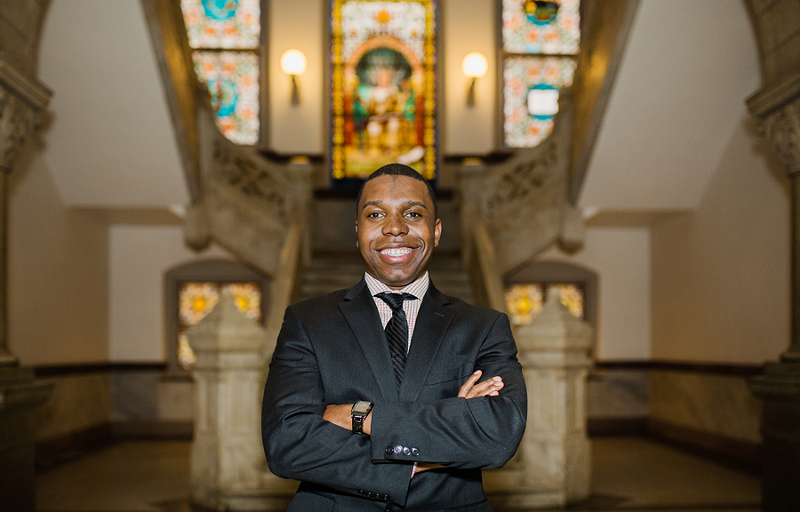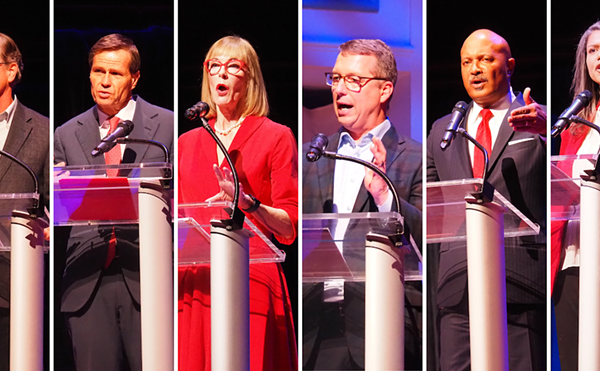City Council’s three newcomers will have to wrestle with a number of tough questions now that they’ve been sworn in. CityBeat reached out to each — Republican Jeff Pastor and Democrats Greg Landsman and Tamaya Dennard — to ask five in particular. Find responses by Dennard here and Landsman here. This week, Pastor, an educator endorsed by the Hamilton County Republican Party, chimes in.
The Mount Lookout resident is a veteran of the U.S. Naval Reserve and Ohio Army National Guard. He holds a B.A. from Central State University, a Masters of Divinity from Payne Theological Seminary and an MBA from Wright State University.
CityBeat: City support for infrastructure around a proposed FC Cincinnati stadium, to the tune of $37 million, has been a hot topic of late. It’s likely, if FC Cincinnati wins an MLS expansion franchise, that you’ll be faced with voting on some elements of this spending. Do you support the deal council passed Nov. 29? The West End has been floated as another potential site for the project. Do you have thoughts on that location versus Oakley?
Jeff Pastor: I hope FC Cincinnati is successful in its bid for an MLS team. I am always supportive of projects putting Cincinnati on the map as a destination location. FC Cincinnati will show off the Queen City to a worldwide audience and create transformational change for the neighborhood chosen as the best location for fans and the ownership group. The stadium will be a catalyst for other developments, creating tax revenue, property taxes and increasing positive vibe FC Cincinnati has created in the last few years. Whenever a new development project comes before city council, I intend to fully vet it and determine the return of investment for our citizens and taxpayers.
CB: One of the city’s biggest moves last year was the creation of an independent board that will oversee the Metropolitan Sewer District, which has been riddled with allegations of monetary mismanagement and conflict between the city and the county. Assuming state lawmakers approve the MSD deal, do you see the deal the city struck as a good one? Why or why not?
JP: I have not yet had an opportunity to review the MSD deal in detail. I understand there are significant hurdles that must be overcome in Columbus for the deal to be finalized. I will always have concerns when issues regarding setting rates, fees and taxes are delegated to un-elected political appointees, because there is a lack of direct oversight by the public over un-elected quasi-governmental officials who will wield the power to tax and increase fees.
CB: Part of the impetus behind that deal was a less-than-cordial relationship between the city and the county. As an incoming council member, do you see that improving under your tenure?
JP: I intend to be collaborative with all of my colleagues on council. Since being elected, I have attempted to meet with each member of council and the mayor to find common goals and projects to work together on in the upcoming term. It will be a goal of mine to help foster partnerships with other local, state and federal officials to serve our mutual constituents and customers.
CB: Cincinnati’s Metro bus system is at a crossroads. Its performance is lagging and without further funding or vastly increased ridership, it faces big deficits, fare increases and service reductions. What can council do to keep Metro viable?
JP: Someone living in Madisonville should not have a two-hour bus commute to get to a job across the city each day and be worried the bus may break down before it gets to Government Square for a required transfer.
I am very familiar with Metro, as my mother worked there for decades when I was growing up. We must make sure Metro is adequately funded to fulfill its mission.
Hard decisions lurk on the horizon. Metro serves more than the city residents and I believe we must continue the regional conversation to determine whether Metro and its current routes and methods of delivery of passengers are the best means to provide this service in the 21st century. Metro must achieve a role of providing access to jobs across our region.
CB: The city’s poverty problems have been big issues for a long time now, and yet we’ve seen very little change recently. What can council do to move the needle? What is your view on the city’s current human services spending? Do you think the mayor’s initiatives — Hand Up and Poverty Collaborative — are promising?
JP: The fastest way to end poverty is to have a job available, period. There have been many new developments throughout the city in the last decade and the city continues to move forward in the right direction. Poverty remains a critical problem in our city. On the campaign trail and at every opportunity I highlighted reducing poverty as a major priority as a council member.
We cannot spend our way out of poverty. We need to create an environment where Cincinnati is the go-to place in the Midwest and the country for major employers looking to relocate to create new jobs and expand current job opportunities. Council, in collaboration with Mayor Cranley, should review our economic incentive programs and compare them with other major metropolitan areas across the country are doing. We can lead in this area.
For example, we could increase incentives for employers who create new jobs, with an emphasis on skilled labor with on-the-job training, in areas of the city at 1.5 times the national unemployment rate and where at least 40 percent of the residents have incomes below the national poverty level.
This is akin to the enterprise zones Congressman Jack Kemp proposed decades ago. I believe this would open up development to areas of the west side, Roselawn, Kennedy Heights and Bond Hill, for starters. Due to our fractured transportation system, having a job in close proximity to your home will create an opportunity to succeed and rise out of poverty.






